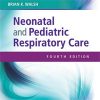Educational Initiatives for EEG in the Critical Care Setting
link.springer.comIt is feasible to teach basic electroencephalography (EEG) to participants in critical care settings from different clinical backgrounds, including physicians and nurses. Brief training programs can enable bedside providers to recognize high-yield abnormalities such as non-convulsive seizures.
29 studies were included after reviewing 7,486 citations.
22 studies were single centre, 17 were from North America, and 16 were published after 2016.
Most EEG studies were targeted to critical care nurses (17 studies), focused on processed forms of EEG with amplitude-integrated EEG being the most common (15 studies), and were shorter than one day in duration (24 studies).
In pre-post studies, EEG programs significantly improved participants’ knowledge of tested material.

















